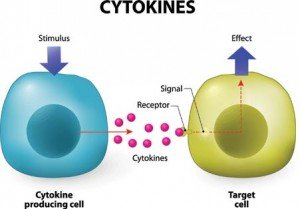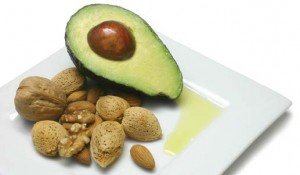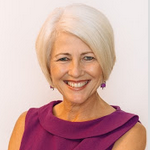The Clear Connection Between Heart Disease and Cancer (and What You Can Do About It)
Editor’s Note: This article first appeared in the February 2017 edition of TTAC’s Heroes Against Cancer member newsletter.
Did you know that heart disease is the #1 cause of death for both men and women in the U.S. as well as the rest of the world?Cancer comes in a close second when looking at both U.S. and worldwide causes of mortality. With so many people being affected by both these “heavy hitters,” it just makes sense that common risk factors have to exist that can contribute to both heart disease and cancer.
And there is. According to a 20-year study of 13,000 men and women conducted by the American Heart Association, people who practice healthy heart habits have a 38% lower risk of developing cancer.
Heart Disease and Cancer: What are the Connections?
Heart disease is a broad term used to describe a number of possibly life-threatening cardiovascular conditions, including angina, arrhythmias, arteriosclerosis, heart failure, and heart attacks. High blood pressure (BP), diabetes, and Chronic Obstructive Pulmonary Disease (COPD) should also be considered when thinking about overall heart health and its connection to cancer risk.Here are just a few studies which show a clear connection between cancer and various forms of heart disease:
- The most obvious connection comes in the form of type 2 diabetes and obesity. Both conditions develop mostly because of the deadly combination of a stressful yet sedentary lifestyle – and by eating the SAD, or the “Standard American Diet,” which is notoriously rich in commercial meat and dairy, processed foods, sweets, salts, and simple carbs.
- According to studies conducted by the World Cancer Research Foundation, obesity itself is the likely cause of close to 20% of all major cancers, including breast, colon, esophageal, cervical, and more. At the same time, being overweight is a major factor in the onset of 58% of type 2 diabetes conditions as well as 21% of “ischemic heart disease” diagnoses.
- Patients
suffering from cardiovascular disease also share elevated levels of
“cytokines” with those diagnosed with cancer, according to a 2015
University of Colorado study and others. Cytokines are small proteins
which can cause inflammation. Their levels are usually elevated in those
with type 2 diabetes and in individuals with cancer tumors.
 Both cardiovascular and cancer patients have elevated levels of
Both cardiovascular and cancer patients have elevated levels of
“cytokines” which are small proteins that can cause inflammation - Cancer and heart disease may also share the same culprits in the form of common pathogenic agents. A study conducted over 20 years ago by researchers at the National Heart, Lung, and Blood Institute and published in the journal Science (1994) discovered possible viral causes to heart disease that act similar to cancer cell growth. The commonly occurring cytomegalovirus can infect plaque cells in arteries, causing proteins responsible for stopping the growth of plaque to malfunction. These same proteins tend to fail in most human cancer cells as well.
- Another common factor between heart disease risk and cancer is stress. The body is equipped to deal with short bursts of stress hormones during a crisis, after which the body will naturally begin to balance itself. When stress becomes chronic, however, the body pumps a constant stream of cortisol into the bloodstream, with devastating effects.
- Inflammatory responses, a depleted immune system, and a whole host of other complications arise from chronic stress which can affect not only a person’s susceptibility to cancer but also the functions of the cardiovascular system. In particular, chronically high cortisol signals the constant production of adrenaline which can have a profound effect on heart health – leading to high BP, high cholesterol levels, and increased risk of heart disease, strokes, and heart attacks.
- Where cancer is concerned, chronic cortisol imbalance has been linked to the underproduction and malfunction of key immune system components that keep cancer at bay, including natural killer (NK) cells. A ground-breaking Stanford University study found that 65% of patients who had advanced breast cancer also had abnormal levels of cortisol in their system.
Considerations About Traditional Cancer Therapies and Heart Health

Many chemotherapy drugs are linked to both short and long term cardiovascular complications
Recent studies have confirmed that there is a distinct connection between certain chemotherapy drugs and the development of cardiovascular conditions. According to the Mayo Clinic, “chemotherapy side effects may increase the risk of heart disease, including weakening of the heart muscle (cardiomyopathy) and rhythm disturbances (arrhythmias). Certain types of chemotherapy also may increase the risk of heart attacks.”
Some chemotherapy drugs that may lead to short or long term cardiovascular complications include:
- Anthracyclines such as Doxorubicin and Daunorubicin
- Trastuzumab (Herceptin) and Pertuzumab (Perjeta), commonly given for HER2-positive breast cancer (a type of breast cancer that tests positive for a protein called human epidermal growth factor receptor 2 (HER2), which promotes the growth of cancer cells)
- Taxanes such as Paclitaxel and Docetaxel, which can lead to abnormal heart rhythms
- Fluorouracil and Capecitabine (Xeloda), which can cause coronary spasms and heart attacks
- Angiogenesis inhibitors such as Bevacizumab, Sunitinib, and tyrosine kinase inhibitors, which have been linked to high blood pressure (BP)
The Curious Case of Fats, Cholesterol, and Heart Disease
For the last 60-plus years, the American medical establishment has used mass media and biased studies to make the false claim that fat in all its forms, and subsequently cholesterol as well, are the main culprits when it comes to heart disease. This biased focus has created a multi-million dollar “low fat / low cholesterol” foods industry.Without getting too political, it is important to point out how corporate agendas have played a part in the “demonization of fats.” As the recent documentary Sugar Coated points out, the “all fat is bad” rhetoric was spurred on in large part by research conducted in the 1950s by Dr. Ancel Keys, a health research scientist with some rather questionable ties to the sugar industry.

Public
opinion is starting to shift and people are realizing that cholesterol
and high quality saturated fats are not inherently bad for you
The truth is that both camps are right in a way. Some kinds of fats are very bad for your health – while others are not only healthy, but even considered to be essential for normal functioning of the cardiovascular system, the brain, the digestive tract, and even the immune system.
First of all, not all saturated fats are inherently bad for you. “Saturated” simply means that the fat molecules in the substance are “saturated” with hydrogen. This is why most saturated fats are usually solid at room temperature. Most are derived from animal products such as meats, butter, and cheese.
Some very healthy oils can also be categorized as saturated as well, such as palm oil and coconut oil. Coconut oil in particular is considered a “superfood” for the many health benefits it provides, including inflammation reduction – a key factor in cancer prevention and healing.
And while everyone admits that artificially created trans fats, which are manufactured when companies turn liquid oils into solids such as with shortening and margarine, should be avoided for heart health as well as for cancer prevention, even well-respected mainstream health organizations disagree about the merits of other forms of saturated fats.
The American Heart Association (AHA) still states that “replacing foods that are high in saturated fat with healthier options can lower blood cholesterol levels and improve lipid profiles.” At the same time, other wellrespected institutions are producing studies which prove the opposite. A 2010 analysis sponsored by Children’s Hospital in Oakland, California, gathered information about approximately 350,000 adults. They found that there was no difference between the risks of heart disease and stroke for people who ate the highest amounts of saturated fat and those who ate the lowest.
Mainstream messages about cholesterol can be just as confusing as well. Cholesterol is a fat-like substance that is found within cells of the body and is needed for the production of certain hormones and vitamin D and is also required for the digestive process. The U.S. Dietary Guidelines Advisory Committee’s latest guidelines reflect a complete “about face” regarding cholesterol, stating that “cholesterol is not considered a nutrient of concern for over consumption.”
Common sense points to the benefits of naturally sourced fats, including some saturated fats. After all, how many thousands of years have humans consumed animal fat as part of a healthy diet? It has only been in the last half a century or so, since the rise of the fast food culture, that the world has seen heart disease rates rise so dramatically and high cholesterol levels began to have an adverse impact on our health.
Monounsaturated Fat is a Must for Breast Health

Research
shows that monounsaturated fats in foods such as olive oil, avocados,
and nuts may have a protective effect against cancer
A Rutgers University study conducted in 2015 discovered the substance oleocanthal in olive oil, which can cause chemical reactions in cancer cells that allows them to be killed by their own enzymes.
Besides olive oil, monounsaturated fats can be found in sesame oil, avocados, walnuts, almonds, macadamia nuts, pistachios, and olives.
5 Things You Can Do NOW to Reduce Your Risk of Cancer and Heart Disease
Here are 5 STEPS you can take NOW to reduce your risk of both cancer and heart disease:
1 | Avoid trans fats and keep your consumption of polyunsaturated fats to a minimum.
In addition to trans fats, try to keep the amounts of polyunsaturated
fats – such as corn, soybean, and canola oils – you consume to a
minimum. If you do consume these kinds of oils, realize that even if
they are labeled as “organic,” they may still be genetically modified.
Approximately 85% of all sources of yellow corn in the U.S. are now GMO,
as is much of the soy and canola produced worldwide.
2 | Give your diet a do-over.
Boost the intake of fresh veggies and healthy fats in your diet. If you
eat meat, commit to eating a moderate amount and make sure it is
organic, grass-fed, and hormone-free.
3 | Move! Just 30 minutes of moderate exercise five times a week
can not only lower your risk of heart disease and diabetes, it can also
boost your immune system, help to keep your weight down, and lower your
cancer risk. The National Cancer Institute urges cancer survivors to
make moderate exercise a serious part of their everyday health regime.

Just 30 minutes of moderate exercise five times a week lowers your risk of both heart disease and cancer
4 | Don’t smoke and keep alcohol to a minimum. It goes without saying that smoking cigarettes increases your risk of both heart disease and cancer. But did you know that a study published in the Journal of the American Medical Association
found that women who have more than three drinks a day have a 15%
higher risk of breast cancer? As for heart disease and alcohol, more
than two drinks a day for men and one for women can increase risk for
heart disease and stroke, according to the American Heart Association.
5 | Keep stress levels down.
Stress is an inevitable part of daily life. You CAN learn how to manage
it and keep your cortisol levels down, however. Meditation, taking a
walk, being in nature, exercise, practicing a hobby you enjoy, or even
laughing at a funny movie can turn off stress hormones and turn on
healing. Experiment with what works for you and commit to doing that one
thing just a few minutes each day.
The vast connections that exist between heart disease and cancer
may seem overwhelming. The mixed messages that continue to exist within
the mainstream scientific community regarding cholesterol and fat don’t
help either. With heart disease and cancer rates so high, chances are
you or someone you know is dealing with the ramifications of either one
or both of these disease conditions right now.There are simple ways to prevent and even heal both cancer and heart disease, however – so don’t despair! In addition to the five recommendations mentioned above, you can also follow these four steps:
Step #1: Educate yourself about the issue, which I hope this article has done.
Step #2:
Remember that no particular system in your body operates in a vacuum.
Begin to view your body as an intelligent whole that has as its constant
goal the healing and balancing of the total organism (i.e. your body).
Step #3:
Make the necessary changes in your lifestyle and diet, such as the five
recommendations mentioned above, that will promote health, not disease.
Step #4: Finally, remember that not all fats are bad for you! Avoid trans fats but also consciously choose
to include more healthy fats, especially monounsaturated fats, into
your diet in order to feed your brain, your heart, and your immune
system. Being heart-healthy and cancer-free requires living a healthy
lifestyle. It may not be easy at first, but when you begin to live the
heart-healthy and cancer-free way, a whole new world of vital health and
vibrant energy will open up to you on all levels!
Find the most powerful, little-known ways to fight cancer and live a long, healthy life from the world’s leading experts in The Truth About Cancer: A Global Quest docu-series!
Article Summary
- People who practice healthy heart habits have a 38% lower risk of developing cancer.
- There is a distinct connection between certain chemotherapy drugs and the development of cardiovascular conditions.
- Not all saturated fats are inherently bad for you.
- Monounsaturated fats can help prevent and heal breast cancer

No comments:
Post a Comment